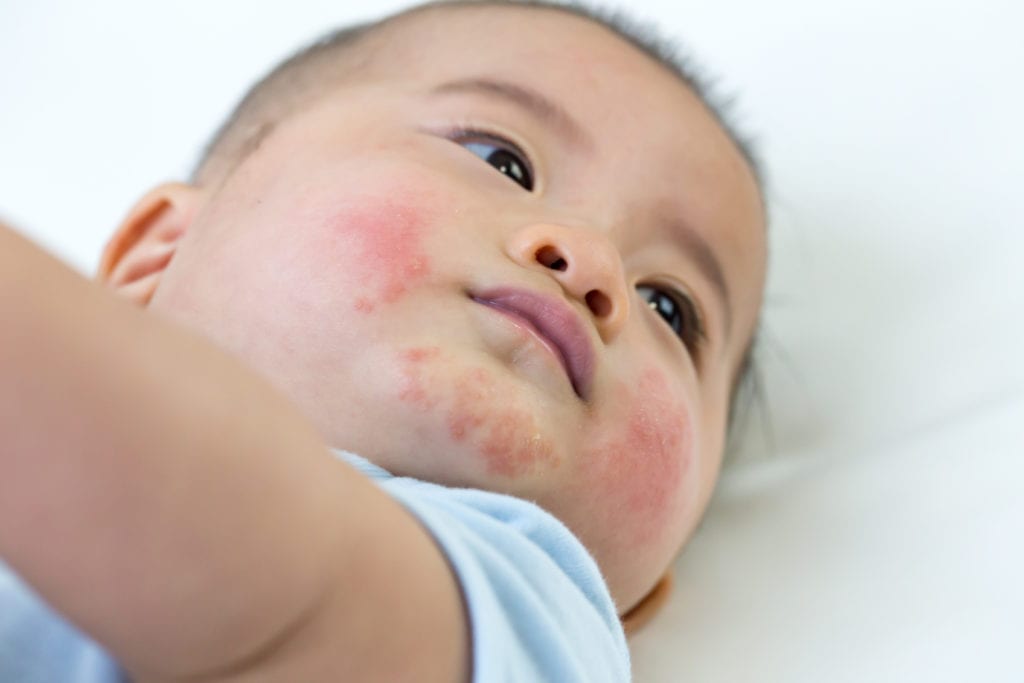No one likes seeing his or her child uncomfortable. But for families with children who have eczema, distressing, itchy rashes are all too common. What is causing your baby’s eczema may stem from a multitude of factors but don’t fret! Here are my top five effective tips to naturally soothe your little one’s skin, along with an overview of the condition so you’re as prepared as possible to take eczema head on.
What is eczema?
Eczema is the general term used to describe any type of skin inflammation—it affects up to 18 percent of children in the U.S. When a child has eczema, inflammation in his or her skin leads to itching, and scratching the itch leads to the release of chemicals that leads to more inflammation. This is called the “itch-scratch cycle.”
What are the symptoms of eczema?
The symptoms associated with eczema may come and go, be mild, moderate, or severe, and may affect different parts of the body. Typically, children with eczema have itchy, dry, and sensitive skin. In some, the skin may appear scaly, rough, red, or darkened, and inflamed. If severe, it may ooze, crack, or even bleed.
Baby eczema may appear anywhere on the body; however, it most commonly affects the face, neck, wrists, ankles, and bends of the elbows and knees in children.
What are the causes of eczema?
Based on current research, eczema seems to be triggered by a variety of factors. There may be a familial tendency towards eczema, and it may be related to conditions such as allergies and/or asthma.
In some children, contact irritants can aggravate the skin—this may include soaps, shampoos, detergents, or even chlorine. For others, environmental allergens may be a trigger—consider dust mites, pollen, mold, and dander (from house pets). Some parents also notice that hot or cold temperatures can aggravate their baby’s eczema.
Diet may also play a role for some children and certain foods have been implicated in the development of eczema. The most common triggers include cow milk products, wheat, eggs, soy, and nuts.
Easing and preventing eczema flare-ups
Consider these simple tips to help keep flare-ups at bay and naturally ease baby eczema symptoms:
- Find alternatives for potential trigger foods—for example, consider goat’s milk-based foods or formula for children with a sensitivity to cow’s milk.
- To address flare-ups, first moisturize and then protect the skin, (particularly after bathing); I like to use coconut oil along with a zinc oxide-based barrier cream.
- Keep nails short to minimize the impact of scratching (some children may benefit from scratch mitts, especially overnight).
- Use a home air purifier, vacuum more frequently, or remove household carpets if environmental irritants are a suspected cause.
- Include omega-3 fatty acids in the diet. Omega-3 fatty acids have anti-inflammatory properties and may help to soothe the skin—top food sources include walnuts, chia and flax seeds, as well as fish such as mackerel, herring, and salmon.
Eczema can be triggered by a long list of factors—and the ideal solution is to find and address the root cause. By keeping a close eye on the factors that might be setting off your baby’s eczema flare-ups, you can help break the itch-scratch cycle and make everyone feel happier and more comfortable.
